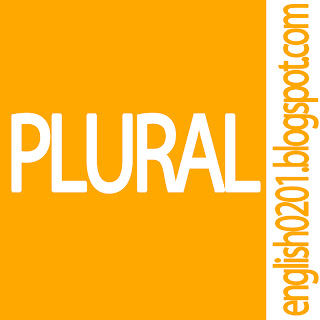The plural is one of the categories of grammatical number in many languages. Plural forms of nouns typically denote a quantity other than the default quantity represented by a noun, which is generally one (the form that represents this default quantity is said to be of singular number). Most commonly, therefore, plurals are used to denote two or more of something, although they may also denote fractional, zero or negative amounts. An example of a plural is the English word cats, which is derived from the singular cat.
Plurality is a linguistic universal, represented variously among the languages as a separate word, an affix, or by other morphological indications such as stress or implicit markers/context.
Words of other types, such as verbs, adjectives and pronouns, also frequently have distinct plural forms, which are used in agreement with the number of their associated nouns.
Some languages also have a dual (denoting exactly two of something) or other systems of number categories. However in English and many other languages, singular and plural are the only grammatical numbers, except for possible remnants of the dual in pronouns such as both and either.
1-2 NOUN + ARE + NOUN: PLURAL
|
|
NOUN + ARE + NOUN
(a) Cats are
animals
|
"Plural"
means "two, three, or more."
Cats = a plural noun
are
=
a plural verb
animals
=
a plural noun
|
(b) SINGULAR: a cat, an animal
PLURAL: cats,
animals
(c) SINGULAR: a city, a country
PLURAL: cities, countries
|
Plural nouns end in
-s
A and an are
used only with singular nouns.
a
|
Some singular nouns
that end in -y have a special
plural form: They
omit the -y and add –ies.
|
|
NOUN
and NOUN + ARE +
NOUN
(d) Canada and
China are countries
(e) Dogs and
cats are animals
|
Two nouns connected
by and are followed by are.
In (d): Canada is a singular
noun. China is a
singular noun. They are connected by and.
Together they are
plural, i.e., "more than one."
|
EXERCISE : Change the SINGULAR sentences to PLURAL sentences.
SINGULAR PLURAL
1. An ant is an insect. = Ants are insects
2. A computer is a machine. = __________________________
3. A dictionary is a book. = __________________________
4. A chicken is a bird. = __________________________
5. A rose is a flower. = __________________________
6. A carrot is a vegetable. = __________________________
7. A rabbit is an animal. = __________________________
Related Post :





0 comments:
Post a Comment
Silahkan berikan komentar anda...